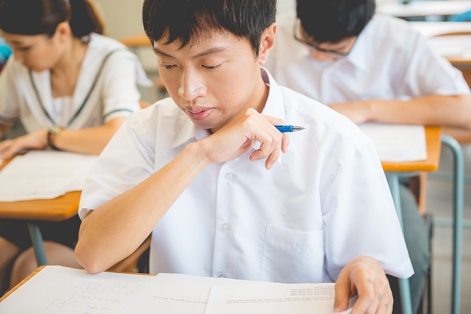
In March, this year’s annual conference and exhibition of the Asia-Pacific Association for International Education (APAIE) was held, focusing on how to prepare the next generation for the tech-driven workplaces of the future.
Speaking at the event was Singapore’s Minister for Education, Ong Ye Kung, who said education was a “key conduit for social policies to address issues such as income disparity and social stratification”.
“Since a key function of education is to produce workers for the economy, industrialisation naturally had a profound impact on how education is being delivered and how teaching is done,” Minister Ong told those gathered at the conference.
“As we ride a new wave of industrialisation today, we should naturally expect and push for the shape of education to change. However, the nature of change is very different now.”
Minister Ong said “a key function” of education is to produce workers for the economy, adding that the Fourth Industrial Revolution has a profound impact on how education is being delivered and how teaching is done.
Across Singapore, schools have been preparing their students by improving digital literacy, project-based learning and ensuring that students understand the likely expectations of the future workplace.
Last year, St Joseph’s International School, located in Kuching, Malaysia, introduced a Bring Your Own Device (BYOD) policy, set up Wi-Fi throughout the entire campus and ensured that all teachers could access the Internet at all times of the day.
The school’s principal, Brother Paul Hough, said every student has a computer, and those who don’t have been asked to buy Chromebooks.
“We’ve seen a huge improvement in digital literacy since implementing this policy,” Hough told The Educator Asia.
“This was also a first in Kuching.”
While digital skills will no doubt be important as students prepare to leave school, other skills such as resilience, collaboration and critical-thinking will be equally crucial.
With this in mind, Hough is opening new avenues for students to engage in Project-Based Learning (PBL), a process that will be helped along by St Joseph’s Marist schools, located in Perth, Australia.
“We have some teachers from these schools who will visit and help develop our staff’s understanding of PBL,” Brother Hough said.
“One thing we’re trying to do in the year ahead is really use our international network to accelerate the access that our teachers have to some of these new developments. We hope that this will improve their professional development, and ultimately, our students’ outcomes.”
Developing these skills is also high on the agenda of Australian International School (AIS) Singapore principal, Dr Eddie Groughan, who said the “balanced education” of his students will be a strong focus in the year ahead.
“Our programs such as our new outdoor leadership program are designed to instill skills such as teamwork, resilience and environmental awareness,” Dr Groughan told The Educator Asia.
“More generally, our expanding pastoral program, with a defined emotional well-being emphasis, demonstrates our intention to ensure an AIS student has the capabilities to respond to challenges and thrive in an ever-changing world.”


